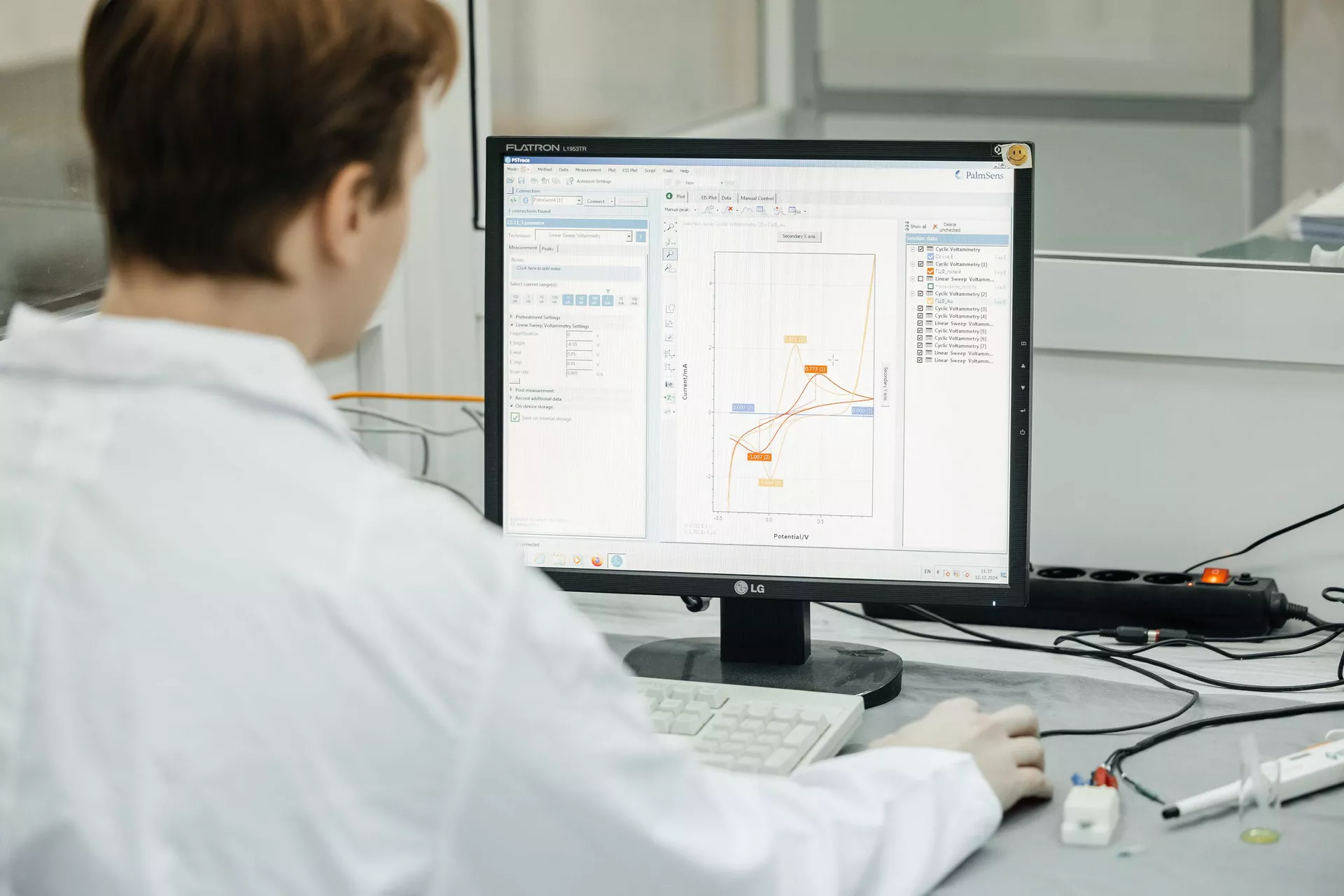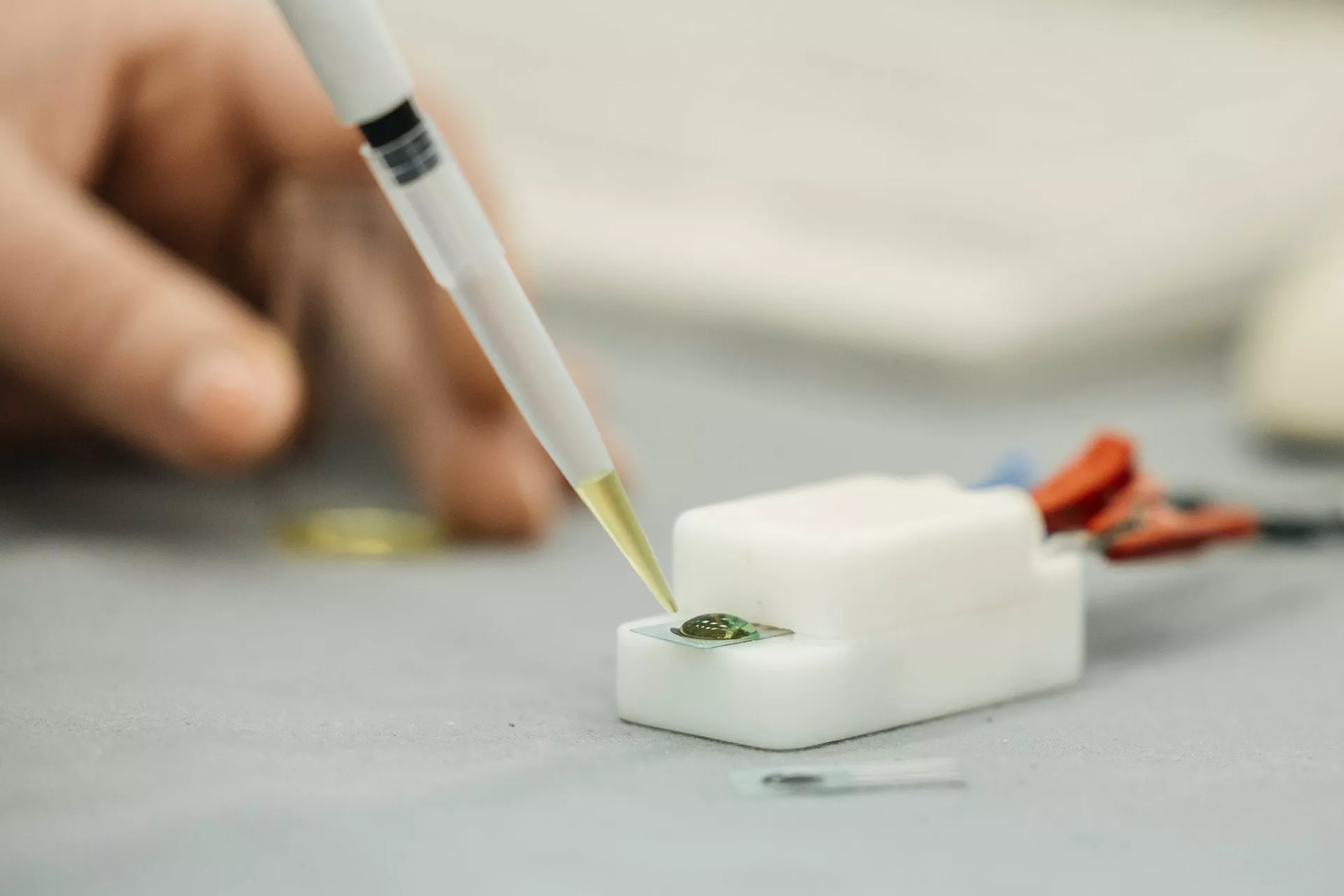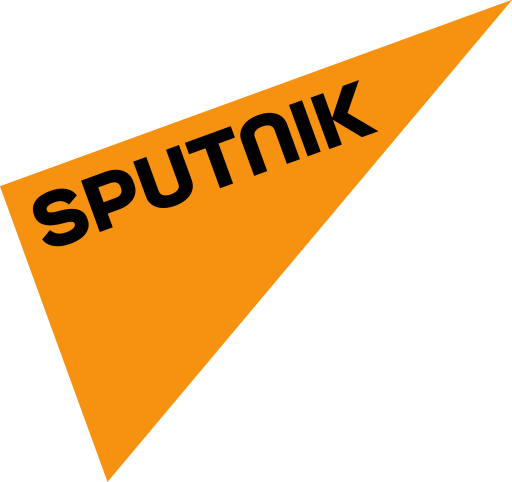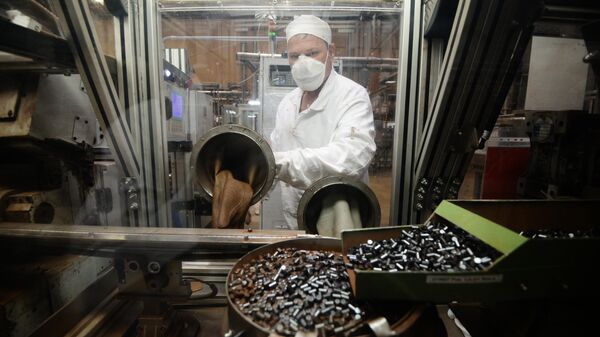According to the researchers, the sensor is ten times more sensitive to this life-threatening substance compared to existing analogs. The results of the study were published in the scientific journal Microchemical Journal.
Carbosulfan is a chemical used in agriculture to combat insect pests, such as the Colorado potato beetle. While highly effective, it is toxic to humans.
Researchers from TPU's School of Natural Resources Engineering and the Research School of Chemical and Biomedical Technologies, in collaboration with the Institute of Strength Physics and Materials Science of the Siberian Branch of the Russian Academy of Sciences (SB RAS) and Charles University in the Czech Republic, have developed a highly sensitive sensor to detect carbosulfan residues in food.
"The unique features of the sensor are its use of inexpensive materials, compact size, and rapid results. It can detect the presence of carbosulfan at concentrations ten times lower than what existing analog devices can achieve," said Elena Dorozhko, a co-author of the project and Associate Professor at the Department of Chemical Engineering at TPU's School of Natural Resources Engineering.
© Photo : Tomsk Polytechnic UniversityRussia Develops Ultra-Sensitive Sensor for Detecting Pesticides in Food

Russia Develops Ultra-Sensitive Sensor for Detecting Pesticides in Food
© Photo : Tomsk Polytechnic University
According to her, the development has potential applications in the pharmaceutical and food industries, as well as in branches of Rospotrebnadzor (Russia's consumer rights and health watchdog).
"The electrochemical sensor provides information about the presence of carbosulfan in raw materials and finished products that reach consumers' tables, such as baby food made from vegetables and fruits. Additionally, in cases where high concentrations of pesticides enter the soil or water, specialists can track when these chemicals start accumulating in fruits that have not yet been harvested," explained Saqib Muhammad, another co-author of the project and an engineer at TPU's Department of Chemical Engineering.
© Tomsk Polytechnic UniversityRussia Develops Ultra-Sensitive Sensor for Detecting Pesticides in Food

Russia Develops Ultra-Sensitive Sensor for Detecting Pesticides in Food
© Tomsk Polytechnic University
The sensor consists of a flexible plastic substrate measuring 46 mm², featuring a conductive pattern made from laser-reduced graphene oxide with silver nanoparticles. Prepared food samples are applied to the sensor, which is then placed in an electrochemical cell connected to a potentiostat. Under a specific potential, the sensor registers a current proportional to the concentration of carbosulfan.
Currently, researchers at TPU are "training" the sensor to simultaneously detect two or three types of pesticides.
The project was carried out as part of the government-funded "Science" program.

 2 weeks ago
7
2 weeks ago
7






 We deliver critical software at unparalleled value and speed to help your business thrive
We deliver critical software at unparalleled value and speed to help your business thrive






 English (US) ·
English (US) ·